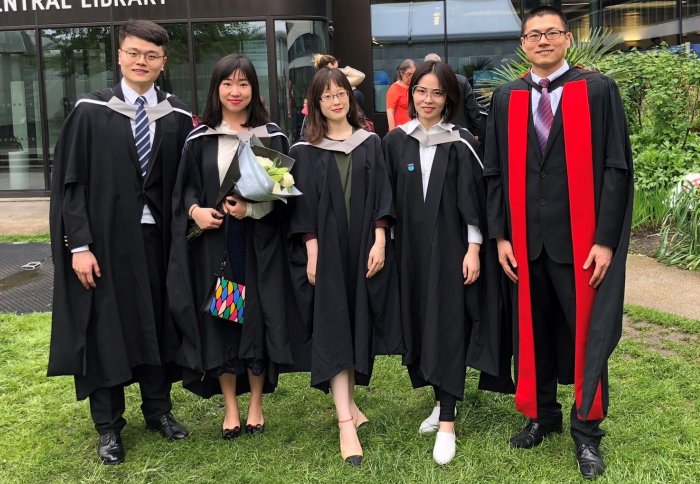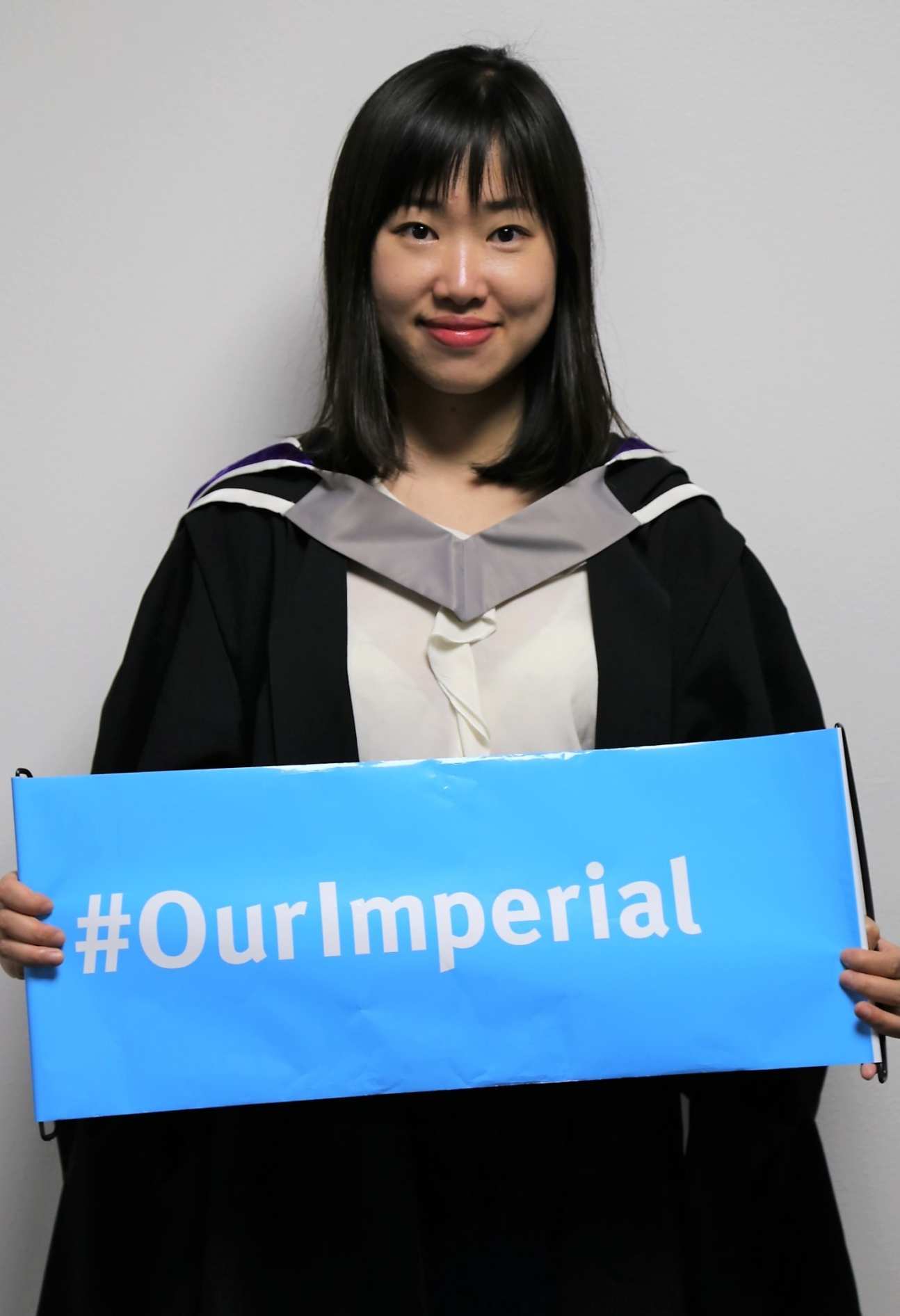Chemical Engineering Alumni share experience of studying at Imperial
by Sara West

On Wednesday 2 May we celebrated the graduation of our MSc and PhD students and welcomed them to our growing network of chemical engineering alumni.
At the reception we spoke with two of our students to hear about their experience at Imperial and find out what they had been up to since finishing their studies.
Qiao Zhang completed an MSc in Advanced Chemical Engineering 2015-16 and carried out her research project with Dr Qilei Song and Professor Andrew Livingston. She now works as a Planner in the oilfield service company Schlumberger in Shanghai, China.
Anqi Wang also completed an MSc in Advanced Chemical Engineering 2016-17 in the Department of Chemical Engineering and now works with Dr Qilei Song as a PhD student. He was awarded the prestigious Department of Chemical Engineering full PhD scholarship for overseas students.
How would you sum up your experience studying at Imperial College London, particularly as an overseas student?

QZ: “Life at Imperial is full of adventures, challenges and happiness. Being an overseas student greatly helped broaden my horizons, and enabled me to develop my independence as an individual. I learnt a lot of new things and made many new friends, and can honestly say my time at Imperial has been the most memorable experience of my life.”
AW: “Diversity would be the word that best characterises the MSc course at the Department of Chemical Engineering. The modules covered so many aspects of chemical science and engineering which presented me with a precious opportunity to learn more about the fields I was interested in. The course also encouraged me to explore areas of Chemical Engineering previously unknown to me, through providing me with the chance to undertake a research project on a topic of my own choosing, based on my preferences. Being able to experience a range of courses helped me discover my real interests and passions and led to me choosing to pursue a PhD. AW: As well as this, Imperial College is such an extraordinarily international platform that amazing ideas tend to burst out of discussions among groups of people from different backgrounds from all over the world. It is not only the knowledge that I learnt from my colleagues and teachers, but also the attitude towards life which I believe will be incredibly beneficial when I face the fascinating and daunting real world out there.”
AW: As well as this, Imperial College is such an extraordinarily international platform that amazing ideas tend to burst out of discussions among groups of people from different backgrounds from all over the world. It is not only the knowledge that I learnt from my colleagues and teachers, but also the attitude towards life which I believe will be incredibly beneficial when I face the fascinating and daunting real world out there.”
What did you enjoy most about your course?
QZ: "At Imperial we had access to the most advanced science and technology and the opportunity to work with renowned professors and researchers, which has been a really exciting experience for me. Additionally, we were able to choose any course and project based on our own interests, from a wide range of subjects including bio-chemistry, environmental engineering, reaction dynamics and carbon capture. This enabled me to tailor my course to my own needs and research interests.”
AW: “The one-year course was very intensive, well-structured and challenging—2 semesters of module studying and 1 semester of independent research in one of the world-leading groups—but it was so enjoyable.
World-leading research is the hallmark and foundation of the department, and modules led by researchers in the department are closely related to what is happening in the industry and in academia. I can’t imagine a better situation than sitting in a lecture room and listening to a lecturer who is one of the pioneers in their field of research, but also accessible enough to welcome one-to-one discussions in person.”
How did what you learned during your degree help you decide your career path?
QZ: “My time in the department enabled me to learn more about chemical engineering in industry, and my project gave me an opportunity to put my knowledge to the test and immerse myself in scientific research. In addition to this there were opportunities to take some business-focused module, such as finance and managing innovation, which gave me a different perspective and insight into industry.”
AW: “My interests in membrane science began developing during the module Membrane Science and Membrane Separation Processes led by Professors Kang Li, Andrew Livingston and Dr Bradley Ladewig. Following that, the research project I did in Dr Qilei Song’s group made me fully realise my interest in researching functional materials for membrane separations – which luckily I have been able to pursue following a successful PhD offer.”
How did you course help prepare you for the working world?
QZ: “Aside from expanding my knowledge of chemical engineering, I have developed an ability to process and absorb new information quickly and problem-solve in a range of situations. These skills are incredibly transferable to a range of positions and industries in the working world, and have been invaluable in my current role where I am responsible for initiating projects to reduce cost and improve supply chain efficiency.”
AW: “My MSc course really prepared me for my PhD in the department, which involves projects on the design and synthesis of functional microporous polymers and their applications in energy storage and conversion. I have also been able to improve my soft skills through my PhD as a Graduate Teaching Assistant, particularly communication and time management.”
Do you have any advice for current students studying at Imperial?
QZ: “I would suggest considering your career path as early on in your academic career as possible. Think about what your interests are and establish some career goals – and make use of the career centre which can provide support with this, as well as helping you write applications and prepare for interviews. And don’t forget to challenge yourself; push yourself outside your comfort zone when you can, and take every opportunity to develop yourself.”
AW: “Enjoy it! I believe everyone at Imperial is special and smart and has their own way of doing something. So the main piece of advice I have is ‘enjoy it’.”
Keep your eyes open for more alumni interviews in the coming weeks! If you'd like to be featured, get in touch by emailing chemeng.comms@imperial.ac.uk
Article text (excluding photos or graphics) © Imperial College London.
Photos and graphics subject to third party copyright used with permission or © Imperial College London.
Reporter
Sara West
Communications Division